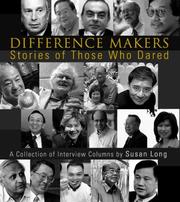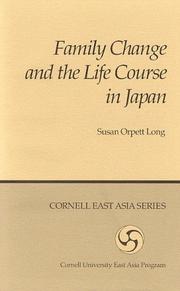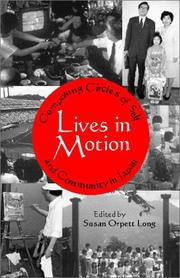| Listing 1 - 10 of 22 | << page >> |
Sort by
|
Book
ISBN: 0429480350 1299356001 1782411038 9781782411031 9781780491325 1780491328 0429905122 0429919352 9780429480355 Year: 2013 Publisher: London Karnac Books
Abstract | Keywords | Export | Availability | Bookmark
 Loading...
Loading...Choose an application
- Reference Manager
- EndNote
- RefWorks (Direct export to RefWorks)
Socioanalysis is the study of groups, organisations, and society using a systems psychoanalytic framework: looking beneath the surface (and the obvious) to see the underlying dynamics and how these dynamics are interconnected. This book examines several of the methodologies used in socioanalytic work. Even though the beginnings of socioanalytic investigation lay in the mid-twentieth century, a broad look across several methodologies has not been done before, despite separate publications dealing with particular methods. In addition, several new methods have been developed in recent years, which the present work incorporates. Connecting all these methods is their aim of 'tapping into' the dynamic operation of what the author calls 'the associative unconscious' within and between social systems. The associative unconscious is the unconscious at a systemic level. Each of the methods discussed in this book accesses the associative unconscious in different ways.
Social systems. --- Socioanalysis. --- Sociology --- System theory

ISBN: 1281927902 9786611927905 9812775080 9789812775085 9812564535 9789812564535 Year: 2005 Publisher: Singapore Hackensack, NJ DL Pub./World Scientific
Abstract | Keywords | Export | Availability | Bookmark
 Loading...
Loading...Choose an application
- Reference Manager
- EndNote
- RefWorks (Direct export to RefWorks)
Difference Makers: Stories of Those Who Dared is a different sort of book. It features many big names from corporate titans to ministers to social entrepreneurs. But it is not just a compilation of feel-good success stories and minting millions. It is a celebration of the human spirit, of daring, drive and doggedness to make a difference. The endeavours within will make you tear, chortle, sigh, reflect and renew your faith that all things are possible. It is guaranteed to make a difference to your life.
Social action --- Social reformers --- Risk-taking (Psychology)
Book
ISBN: 0429909020 0429484259 1782414754 9781782414759 9781782203483 1782203486 1781816077 9781781816073 0429923252 Year: 2016 Publisher: London
Abstract | Keywords | Export | Availability | Bookmark
 Loading...
Loading...Choose an application
- Reference Manager
- EndNote
- RefWorks (Direct export to RefWorks)
"This book explores a theoretical model - the Transforming Experience Framework (TEF) - used to understand the complexities and ambiguities of experience within organisational life. The TEF explores how people can take authentic action through taking up roles. The model is initially presented together with an understanding of the nature of unconscious dynamics and their disturbing and creative potentials. The various chapters explore situations, dilemmas and case studies in organisations through expanding on different aspects of the Framework. The chapters of this book are written almost exclusively by men and women who have worked for the Grubb Institute, now named the Grubb Guild, some of them for 50 years and others as graduates or Faculty of the Grubb Institute's Master's Programme in Organisational Analysis and Leadership. Writers include or have been influenced by Bruce Reed, Barry Palmer, David Armstrong, Jean Reed, Bruce Irvine, Vega Roberts, Susan Long, Rebekah O'Rouke and John Bazalgette. The present manifestation of the Grubb thinking is through the Grubb School of Organisational Analysis: http://www.grubbschool.org.uk. Susan Long edits the book in her role as a Faculty Member in the Grubb School of Organisational Analysis.The intention of bringing this collection together is to demonstrate how the model can be used in organisational analysis, research and consulting. The framework has been gradually developed over many years with evolving versions being tried and tested in organisational research and consulting but has not been comprehensively described previously. The framework is in constant evolution and should be regarded as a living model, responsive to new ways of thinking and to changes in organisational experiences and contexts."--Provided by publisher.
Book
ISBN: 0429921721 0429907494 0429482728 1283070588 9786613070586 1849406464 9781849406468 9781283070584 1855755769 9781855755765 Year: 2008 Publisher: London Karnac
Abstract | Keywords | Export | Availability | Bookmark
 Loading...
Loading...Choose an application
- Reference Manager
- EndNote
- RefWorks (Direct export to RefWorks)
"There is evidence of a movement from 'a culture of narcissism' toward elements of a perverse culture. This book brings forth and examines the evidence as it reveals itself through one of the major institutions of our time: the work organisation. Corporations and organisations for work are major centers of social activity. In many senses they provide a critical source of identity for their members, just as do families and religions. The examination of corporations and organisations gives access to most of the dynamics operating within our society and reveals some of the deeper assumptions upon which our lives are based. To call them simply a reflection of human social organisation and proclivity, perhaps is to underrate the importance of themselves shaping today's psyche. To look at the formation of perverse practice, structure and culture within organisations is also to look at that development in society more broadly. The book first examines the nature of perversity and its presence in corporate and organisational life. Then, four chapters examine the 'corporate sins' of perverse pride, greed, envy and sloth, each taking case studies from major organisations suffering their effects. Finally, the book enquires into the nature of the consumer/provider pair as a centerpiece of the perverse cultural dynamics of current organisational life. The emphasis in the book is on perversity displayed by the organisation as such, rather than simply by its leaders, or other members, even though they may embody and manifest perverse primary symptoms to the extent that they at times engage in corrupt or criminal behaviours. What is explored is a group and organisation dynamic, more deeply embedded than conscious corruption. Within the perverese structure some roles become required to take up corrupt positions. They become part and parcel of the way things work. The person may condemn certain practices, but the role requires them. Tensions between person and role may mean that the person in role acts as they would not while in other roles. Such tensions may lead to the dynamics of perversity. This book is important reading for managers, consultants, and all who are interested in the dynamics propelling what seem to be the out-of-control dynamics within contemporary organisational life. It helps us understand how many people in positions of trust may end up abusing those positions. It looks at how we may be collectively perverse despite our individual attempts to be otherwise."--Provided by publisher.
Corporations --- Business ethics. --- Deadly sins. --- Corrupt practices. --- Corrupt practices --- Psychological aspects.

ISBN: 0939657449 Year: 1988 Publisher: Ithaca, N.Y. Cornell University Press
Abstract | Keywords | Export | Availability | Bookmark
 Loading...
Loading...Choose an application
- Reference Manager
- EndNote
- RefWorks (Direct export to RefWorks)
Families --- Life cycle, Human --- J4170 --- Human life cycle --- Life stages, Human --- Lifecycle, Human --- Human growth --- Life cycles (Biology) --- Maturation (Psychology) --- Developmental psychology --- Social aspects --- Japan: Sociology and anthropology -- family --- Japan --- Social conditions --- Sociology of the family. Sociology of sexuality

ISBN: 1134594135 1280069651 0203464478 0203249623 9780203249628 9780203464472 9780415223522 0415223520 9786610069651 6610069654 9781134594139 9781134594085 1134594089 9781134594122 1134594127 9780415510721 0415510724 Year: 2000 Publisher: London New York Routledge
Abstract | Keywords | Export | Availability | Bookmark
 Loading...
Loading...Choose an application
- Reference Manager
- EndNote
- RefWorks (Direct export to RefWorks)
In an era of changing demographics and values, this volume provides a cross-national and interdisciplinary perspective on the question of who cares for and about the elderly. The contributors reflect on research studies, experimental programmes and personal experience in Japan and the United States to explicitly compare how policies, practices and interpretations of elder care are evolving at the turn of the century.
Older people --- Care --- Government policy --- Services for

ISBN: 0824829107 0824829646 9780824829100 9780824829643 0824843967 Year: 2005 Publisher: Honolulu (Hawaii) : University of Hawaii press,
Abstract | Keywords | Export | Availability | Bookmark
 Loading...
Loading...Choose an application
- Reference Manager
- EndNote
- RefWorks (Direct export to RefWorks)
Death --- Ethnopsychology --- Life and death, Power over --- Terminally ill --- Social aspects --- Life and death, Power over.

ISBN: 1885445466 9781885445469 1885445067 9781885445063 Year: 1999 Publisher: Ithaca East Asia Program, Cornell University
Abstract | Keywords | Export | Availability | Bookmark
 Loading...
Loading...Choose an application
- Reference Manager
- EndNote
- RefWorks (Direct export to RefWorks)
This volume explores the diversity of contemporary Japanese society by studying how people "compose" their families, their communities, and their own identities. Challenging fixed boundaries characteristic of institutional analysis, these essays comprise an anthropology of real people who age, who play, and whose lives speak to ours even over chasms of cultural differences and misunderstandings. The contributors are historians, sociologists, and anthropologists of Japan who engage these ideas in their research and who have been inspired over the years by the spirit of David Plath's anthropology of self. [from publisher's advertisement].
Book
ISBN: 9780824843960 Year: 2005 Publisher: Honolulu
Abstract | Keywords | Export | Availability | Bookmark
 Loading...
Loading...Choose an application
- Reference Manager
- EndNote
- RefWorks (Direct export to RefWorks)

ISBN: 9780824843960 9780824829643 Year: 2005 Publisher: Honolulu, Hawaii University of Hawaii Press
Abstract | Keywords | Export | Availability | Bookmark
 Loading...
Loading...Choose an application
- Reference Manager
- EndNote
- RefWorks (Direct export to RefWorks)
| Listing 1 - 10 of 22 | << page >> |
Sort by
|

 Search
Search Feedback
Feedback About UniCat
About UniCat  Help
Help News
News